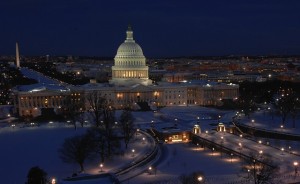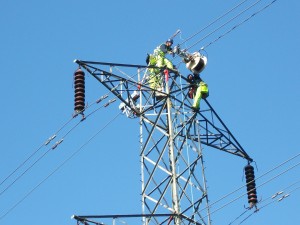44 item(s) were returned.
Founder and CEO
SMART WATER, SMART CITY LLC
Around the country, a new conversation is emerging among municipal leaders and utility executives as they explore the energy/water nexus. While Senator Murkowski started the discussion at the federal level in 2014, local leaders are just beginning to question the impact of the energy/water nexus. The water/energy nexus deals with the need for water to produce energy, and for energy to treat and distribute clean water. Water infrastructure is an essential public service in any city and is intrinsically linked to energy. Smart technologies and smart strategies for water and energy utilities are needed to address conservation challenges and form… [more]
View InsightEconomist
Environmental Defense Fund
Throughout most of the country, residential electricity customers pay the same price for electricity regardless of when it is consumed. Such flat rates mask the fact that true system costs vary over time according to electricity demand. Prices that better reflect the time-varying costs of producing and delivering electricity can lead to a number of economic and environmental gains, such as reduced wholesale prices, increased investment in clean distributed energy resources, and lower overall carbon emissions. Time-variant electricity pricing gives customers greater control over their electricity bills, since they can use electricity when it is cheaper and cut back when… [more]
View InsightExecutive Director
Renewable Hydrogen Alliance
Energy storage has become one of the hottest topics in the electric power industry today as penetration levels of variable energy resources (e.g. wind, solar) rise rapidly. However, from the perspective of the electricity industry, analyzing energy storage can be dauntingly complex, and financial incentives are weakened by depressed electricity prices. A recent study summarizing the state of energy storage, “Energy Storage and Opportunities: A West Coast Perspective White Paper,” offers the following conclusions: Complexities in calculating and realizing the value of energy storage provides multiple system benefits that are often not fully valued, partly because of the complexity involved.… [more]
View InsightUnited States Senator, State of Alaska
Chairman, Senate Energy and Natural Resources Committee
As articulated in Energy 20/20, my blueprint for a new U.S. energy policy conversation, I believe there is a consensus that it is in our national interest to make energy abundant, affordable, clean, diverse and secure. In addressing these goals, too often affordability is ignored – despite the difficult choices increasing energy costs impose on Americans. In particular, low-income households are highly vulnerable to energy prices because energy bills make up a larger percentage of their living expenses. These families are energy insecure, defined as the inability to afford to maintain a home at a reasonable temperature and the loss… [more]
View InsightPresident
Micro-Utilities, Inc.
An analysis has been made to determine if there would be enough electricity in the US by 2050 to support a carbon-free future to avoid the worst effects of climate change. Assuming that carbon capture and sequestration is not practical, a mix of nuclear and renewable energy power plants was examined. Existing fossil power plants and nuclear plants represent 86% of the electricity that was produced in 2012. By 2050, to be carbon-free, all of these fossil plants would have to be phased out, while all present nuclear plants would have reached the end of their operating licenses. According to… [more]
View InsightPublic Utilities Regulatory Analyst
California Public Utilities Commission
The state of California is faced with the challenge of reaching its carbon emissions reduction and renewable portfolio standard goals while maintaining the safety and reliability of the electric supply and protecting the economic interests of the ratepayers. In addition to AB 32, which calls for reducing greenhouse gas emissions to 1990 levels by 2020, the state also has a Renewable Portfolio Standard goal of 33% renewables by 2020. The California Public Utilities Commission (CPUC), the California Independent System Operator (CAISO) and many stakeholders have been working on policies, technologies and market mechanisms to reach these goals. Managing the effect… [more]
View InsightA battle is heating up in California regarding the State’s net metering policy as the California Public Utilities Commission is reviewing the policy’s costs and benefits. Net metering is an incentive that allows consumers who produce their own electricity, from rooftop solar panels for example, to sell excess back to the grid (often) at full retail price. Opponents of net metering contend that the volumetric retail rate includes fixed costs that are essential to the long-term stability of our utility infrastructure. They claim that net metering customers get the benefit of using the grid, but pay less to do so… [more]
View InsightLast year, significant growth in natural gas production combined with low demand – due to a warm winter – caused natural gas prices to plummet below US$2 per thousand cubic feet. This benefited consumers, but forced some energy companies to abandon gas drilling programs and put significant pressure on their budgets, most notably Chesapeake Energy Corp. The decade-low prices also facilitated a transition in electric power generators from coal to gas, and in some cases nuclear to gas. However, according to EnergyWire, some analysts, like James Sullivan of Alembic Global Advisors, believe that this short-term electricity fuel transition has maxed… [more]
View InsightLast week the Senate Energy and Natural Resources Committee, chaired by Senator Jeff Bingaman (D-NM), held a hearing on the Clean Energy Standard Act of 2012 (CESA). Witnesses offered a variety of perspectives on the bill. As discussed during the hearing, the EIA’s Analysis of the Clean Energy Standard Act of 2012 projects an increase in renewable generation, a decrease in carbon emissions, and a hike in electric rates compared to a business-as-usual scenario. Dr. Karen Palmer of Resources for the Future supported many of the EIA’s findings, but added that the small utility exemption — which exempts energy retailers… [more]
View InsightSteve Jaczko, Chairman of the Nuclear Regulatory Commission (NRC), announced his resignation this week amidst unflattering reports of his leadership and congressional hearings. Jaczko spent three years as Chairman and more than 7 years on the Commission. He will step down after a successor is confirmed, or after June of 2013, when his term would have ended. His tenure was marked by efforts to address longstanding safety concerns at nuclear reactors across the U.S., although these efforts were viewed with skepticism by those in the industry, according to the New York Times. Jaczko was criticized for ending the government’s consideration… [more]
View Insight






